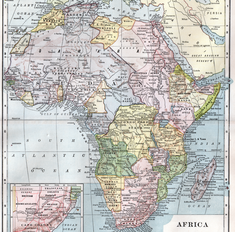|
Question or Term
|
Answer
|
|
Those factors that have been the two most significant barriers to the creation of nation-states in alphabetical order
|
Colonialism and Imperialism
|
|
An idea by Jean Jacques Rousseau of the collective will of the people as a whole, criticsed by some as a tyranny of the majority
|
General Will
|
|
The formerly dominant socialist principle of placing greater emphasis on group priority and ownership over that of the individual
|
Collectivism
|
|
Nationalism within areas formerly under foreign control seeking to unite indistinct peoples into one national identity, often via leadership cults, socialist nationalism, or religion, often Islam
|
Post-Colonial Nationalism
|
|
A socialist concept of a by-product of capitalism in which people - particularly the proletariat - developed awareness of their position in the class system, leading to class conflict and revolution
|
Class Consciousness
|
|
That which social democracy believes is undermined by inequality, class or otherwise, requiring welfarism, education, and social justice
|
Society
|
|
The classical Marxist view of a transitional phase between revolution and communism
|
Dictatorship of the Proletariat
|
|
An Italian republican who emphasised a spiritual and religious foundation to national identity, with the interests of the nation being paramount over those of the individual
|
Giuseppe Mazzini (1805 - 1872)
|
|
The process by which most nation-states have come about
|
Self-Determination
|
|
A Leninist process in which there would be one party, in which open discussion could occur, its decisions embodying the will of the people, making further debate anti-revolutionary, criticised as being the source of much repression
|
Democratic Centralism
|
|
|
Question or Term
|
Answer
|
|
That which socialists believe should be strong and centralised, while not being dominated by any one individual or group so as to guarantee equality and reduce privilege
|
The State
|
|
The idea of a shared culture being foundational to a nations organic unity, seeking either a liberal protection of a culture as in Wales or the expansion and dominance of a culture as in Nazi Germany
|
Cultural Nationalism
|
|
An early democratic socialist who saw capitalism as corrupting, requiring state intervention and trade unionism to overcome it, though via constitutional and reformist means
|
Beatrice Webb (1858 - 1943)
|
|
That branch of socialism usually identified with communism that seeks the establishment of socialism by means of revolution
|
Revolutionary Socialism
|
|
The five foundational common identities of nationalism in alphabetical order
|
Culture, Ethnicity, Geography, Language, and Religion
|
|
Those two individuals in alphabetical order who disagreed with Karl Marx in that they believed that socialist revolution could arise in economically underdeveloped societies
|
Rosa Luxemburg and Vladimir Lenin
|
|
That which socialists view optimistically by seeing it as malleable, cooperative, altruistic, and fraternal, though these attributes having been diluted by capitalism
|
Human Nature
|
|
A democratic socialist view of Beatrice Webb's that voters, having no vested interest in capitalism, would elect socialist governments which would lead to a gradual development and progress of socialism
|
Inevitability of Gradualism
|
|
Those socialists such as Robert Owen who emphasised cooperation and communal ownership, considered naive by Marx
|
Utopian Socialists
|
|
The belief that common societal interests can be advanced by the world uniting across boundaries
|
Internationalism
|
|

